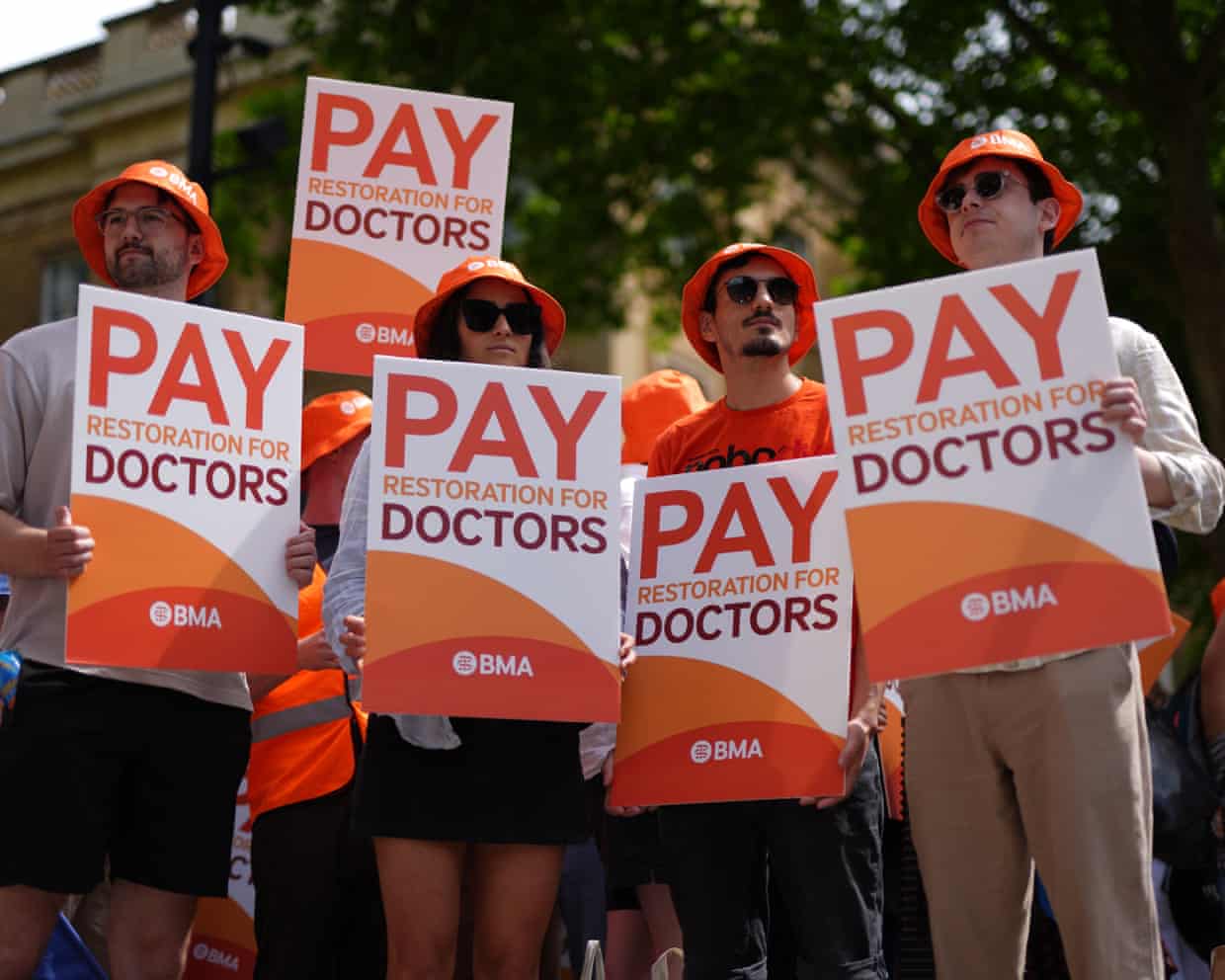BMA Warns NHS Plans for Doctor Strikes Endanger Patient Safety

The British Medical Association (BMA) has raised serious concerns over the National Health Service’s (NHS) strategy for managing upcoming strikes by resident doctors in England. Up to 50,000 resident doctors, previously referred to as junior doctors, are scheduled to participate in the industrial action from 7:00 AM on July 25 to 7:00 AM on July 30, 2024, demanding a 29% pay increase.
In a letter addressed to Sir Jim Mackey, the NHS chief executive, Dr. Tom Dolphin, chair of the BMA council, and Dr. Emma Runswick, deputy chair, criticized the NHS’s approach to handling the strikes. The BMA argues that the decision to continue scheduled non-urgent care during this period compromises patient safety. Historically, during prior strikes, senior hospital doctors, including consultants, have stepped in to cover urgent and emergency services while postponing elective procedures.
The BMA’s letter states, “Your decision to instruct hospitals to run non-urgent planned care stretches safe staffing far too thinly, and risks not only patient safety in urgent and emergency situations, but in planned care, too.” They emphasized that it is unsafe for consultants to manage elective care while also covering for absent resident doctors. The association has urged the NHS to reconsider its instructions, advocating for the postponement of non-urgent planned activities to ensure adequate staffing for urgent services.
The previous round of strikes, which involved various health workers, is estimated to have cost the NHS in England approximately £1.5 billion, resulting in 1.5 million postponed appointments, procedures, and operations. During those strikes, a “derogation” process allowed hospitals to request that striking doctors return to work if patient safety was at risk. While the BMA has confirmed its commitment to this process, it has made clear that it will not facilitate non-urgent work during the current dispute.
In response to the BMA’s warnings, Prof. Meghana Pandit, co-national medical director for secondary care at NHS England, stated, “The safest thing for patients is for the NHS to maintain as much urgent and planned care as possible during strikes, and we would encourage the BMA to work with us constructively to achieve this in the event industrial action goes ahead.”
The backdrop to these strikes involves the last major industrial action that concluded in September 2023. At that time, resident doctor members voted to accept a government pay deal worth an average of 22.3% over two years. Under the latest pay structure for 2025-26, they received a 4% increase along with £750 on a consolidated basis, resulting in an average rise of 5.4%. Government officials assert that these increases amounted to a total pay rise of 28.9%. In contrast, the BMA insists that resident doctors require a 29.2% increase to recover from pay erosion dating back to 2008-09.
As the strike date approaches, the BMA continues to advocate for measures that prioritize patient safety while addressing the demands of the resident doctors. The outcome of this dispute could have significant implications not just for the doctors involved but also for the broader NHS system and the patients it serves.






